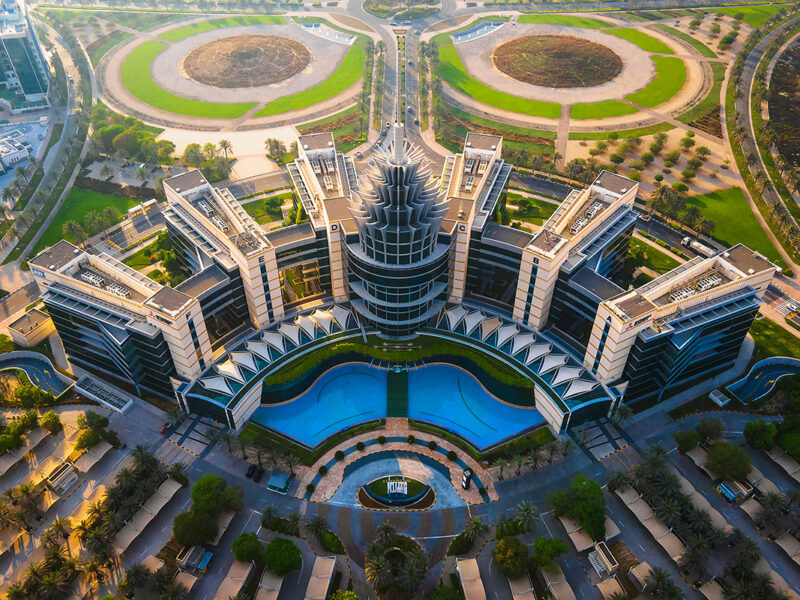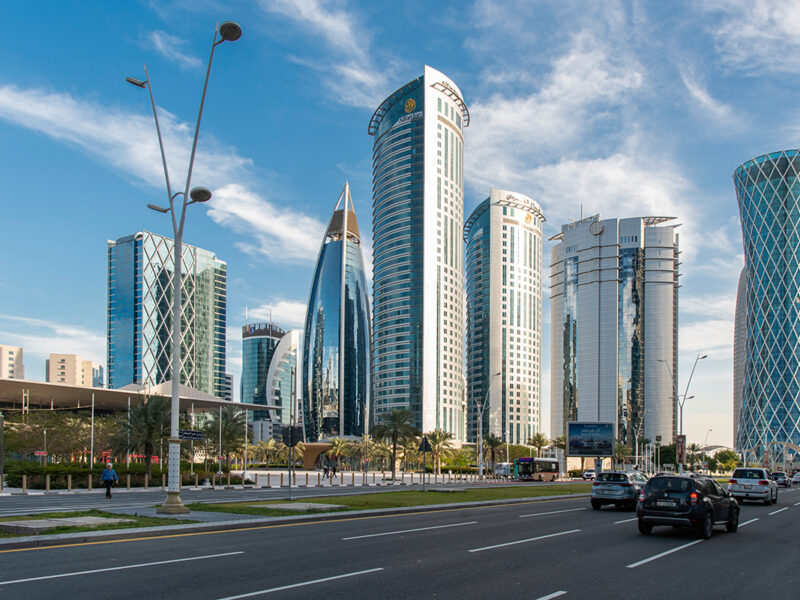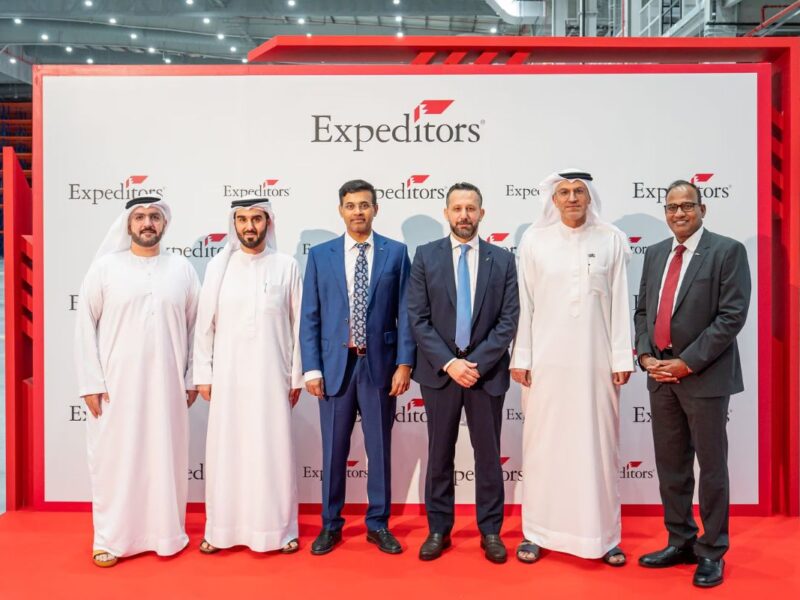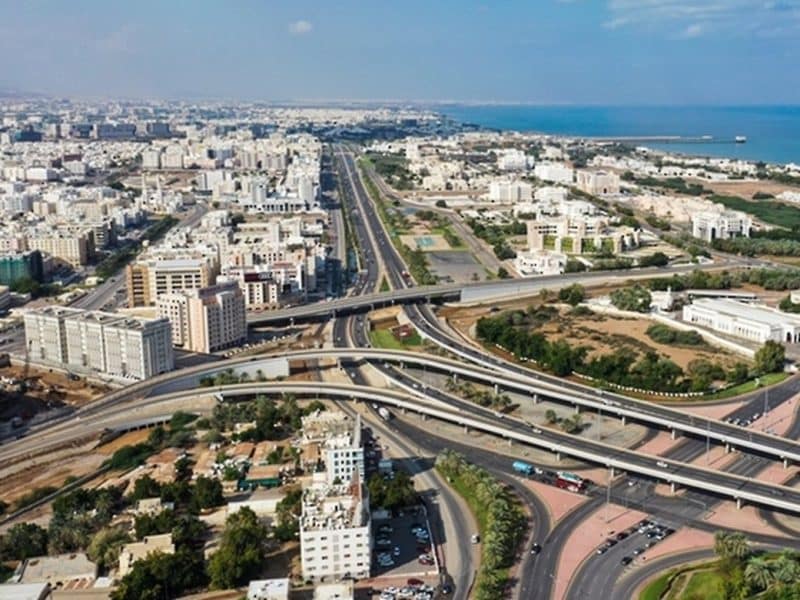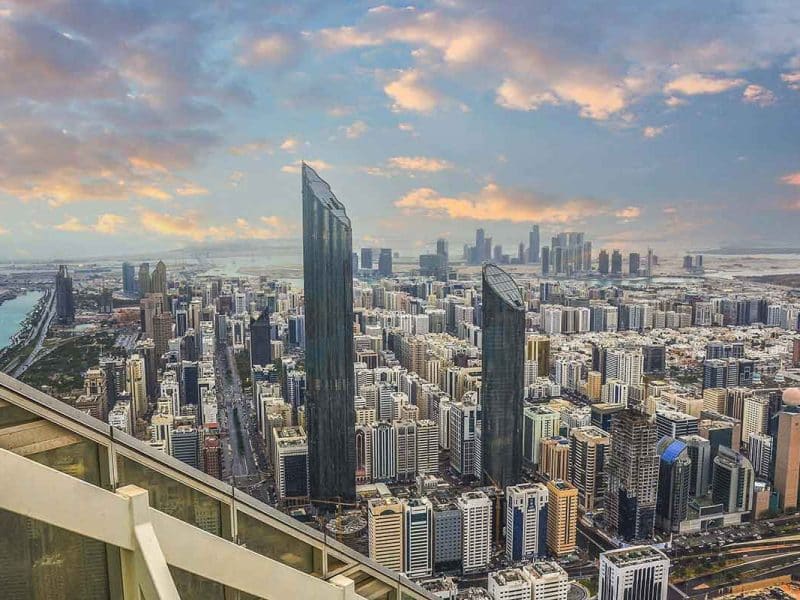A proud Egyptian, a determined social activist, and a champion for sustainable thinking might seem like surprising qualities for a titan of the steel industry, but Ahmed Abou Hashima encompasses all these and more with barely a shrug.
Definitions, challenges and even having odds stacked against him are but a trifle in the vision of a man who understands no limitations.
His ambition is prodigious and his relative youth is just one of many notable things about this titan of industry. Abou Hashima is part of a rarefied coterie of leaders who saw opportunity in a time of crisis and upheaval and who chose to lay strong foundations when others instinctively circled their wagons.
Abou Hashima founded Egyptian Steel in 2010 on the cusp of the Egyptian Revolution, and as the country’s population found a collective voice and Egypt’s political destiny was forged, Abou Hashima was instigating is own “revolution of work and production.” While the timing to build a business may have been less than fortuitous, Abou Hashima held his resolve.
“There was no going back,” he tells CEO Middle East. “I’ve had to work harder to overcome delays due to political change.” Having launched Egyptian Steel at a time when many businesses might have avoided Egypt entirely, he is adamant that a clear leadership vision was more important than ever.
“Dreaming was not enough. I had a clear vision and a sound strategy; I took the decision and my dream became a tangible existence.”
He recalls that in the late 1990s, he became convinced that he wanted to be an employer, and not an employee.
“I decided I did not want a conventional job or life and pursued my dream of becoming an entrepreneur, depending on nothing except my determination, ambition and will to succeed no matter much effort and work I needed to exert.”
Major trade outlets
Abou Hashima created partnerships with investors across the region, establishing four plants across Egypt in Alexandria, Al Ain Sokhna, Port-Said and Beni Suef. Strategically located to vital port outlets, the plants are able to easily connect to major trade outlets. With a billion dollars of investment having buoyed the original build, Egyptian Steel Group was launched, but it immediately set itself apart due to its notable environmental advancements.
“I’m always looking for innovation in every aspects of life… It’s in my DNA,” notes Abou Hashima. “Therefore, sustainability in my business came naturally. Using the latest technology in the steel industry and saving the environment at the same time were my goals.”
The group boasts high sustainable achievements including usage of the world’s fastest technology. This allows for steel to be produced within just two hours, reducing dust emissions by around 30 to 40 per cent compared to other leading steel plants.
Egyptian Steel Group enjoys the highest energy saving levels and it recycles its waste water, using it to irrigate plants and produce biodiesel and other alternative fuels. Egyptian Steel leads the way not just in terms of its industry but by being run according to sustainable guidelines, a challenge that poses its own unique set of obstacles.
“It’s a challenging concept,” agrees Abou Hashima. “We’re changing the whole perception of the steel industry and introducing, for the first time, the latest eco-friendly technology. We are changing a culture. This is challenging, but it has proven to be successful and it has a beneficial impact on the industry and the environment.”
Social initiatives
Sustainability in business is more than just about the environment, of course, it is also about a holistic approach to workforce, society and community. In this regard, Abou Hashima is an exemplar, lending his support to a range of social and charitable initiatives that seek to improve the living and working conditions of Egypt’s most vulnerable or needy citizens.
His projects include a hospital, clean water projects, and elderly care homes. He sponsors the Youth Leaders Foundation that empowers young leaders to engage in the community. He believes in the power of private businesses to enable meaningful, positive changes.
“The contribution of private corporations in Egypt is tremendous. We work hand in hand with the government for the people of Egypt’s welfare. Some of the initiatives that I’m adopting include revamping the neediest villages in Egypt and providing a decent source of income and standard of life and supporting Egyptian youth in terms of education, sports and leadership development.”
Egyptian Steel Group also contributes funds to supporting people with special needs and invests in the training of its own workforce.
An avowed patriot, Abou Hashima has been instrumental in using his voice to promote his home country abroad, championing its potential to investors, convinced that this is one way to aid its economi c recovery.
“I love everything about my country; the people, the land, the weather, the local culture. It’s a land with a million opportunities. All the causes I’m working on are important to me, but revamping the neediest villages in Egypt and providing a decent source of income and standard of life, supporting youth and my country takes precedence,” he notes. His role in the national economy cannot be overstated, and he has single-handedly supported advertising campaigns around the world that seek to bring attention to Egypt’s potential.
Fuelled by an inner drive that sees him “in a constant race with time,” Abou Hashima’s stratospheric career rise has been acknowledged through a series of prestigious awards. He is the Arabian Business Young CEO of the Year and the magazine’s Best Visionary in Saudi Arabia, as well as one of its Top 100 Powerful Arabs. “It’s a huge responsibility,” he says, but it seems that it is his own his inner force that truly drives him.
After building a solid name in the steel industry, Abou Hashima moved on to establishing the Egyptian Cement Plant in Sohag which boasts a production capacity of 2 million tons per year and is a major economic addition in Upper Egypt.
To complement his success in the building materials sector, Ahmed Abou Hashima established Egyptian Contracting, a full service construction management and general contracting firm. It is but a part of an empire that seeks to combine social responsibility with industry domination.
“I had this dream from the beginning to create this one-stop-shop. It is a model that exists abroad and I always wanted to implement it in my home land,” he says of the venture.
A humble yet determined leader, he places great value on the qualities of honesty, integrity, commitment and empowerment, and says that his greatest asset is his people.
“I believe in my human capital and exert every possible effort in selecting and developing my team. I believe in the importance of diversification and I encourage people from all walks of life, whether fresh graduates or experienced professionals. My door is always open to my employees, I have regular encounters with the employees, but I am also a believer in strong, organised hierarchy.”
Buoyed by his conviction and an unwavering belief in his country, it is clear that the man of steel and a heart of gold is unstoppable. As he puts it himself, “My ambition is limitless and I have a goal to further diversify my investments. My next step is always my next challenge.”
Inside the mind of a leader
How do you define success?
Seeing my team growing, my plants running against all odds and my sustainable social responsibility rising.
Who influenced you to make giving back part of your life?
My father and the way he brought me up. Everything else came from within and my love for my country.
Are there books that have shaped your thinking?
I’m fond of Confucius’ philosophy, Gandhi’s wisdom and Bill Gates’ inspiring sayings.
What has been your most challenging lesson?
You must stick to your values no matter what.
Your productivity and achievements are prodigious – how do you achieve so much?
Being organised, perseverance and staying well-focused.
With more stability in Egypt, what is your plan for the next five years?
My business goals are infinite and the diversity in my investments are in the making whether in the tourism, education or food industry sectors. Also, a more social role is in the plan.

